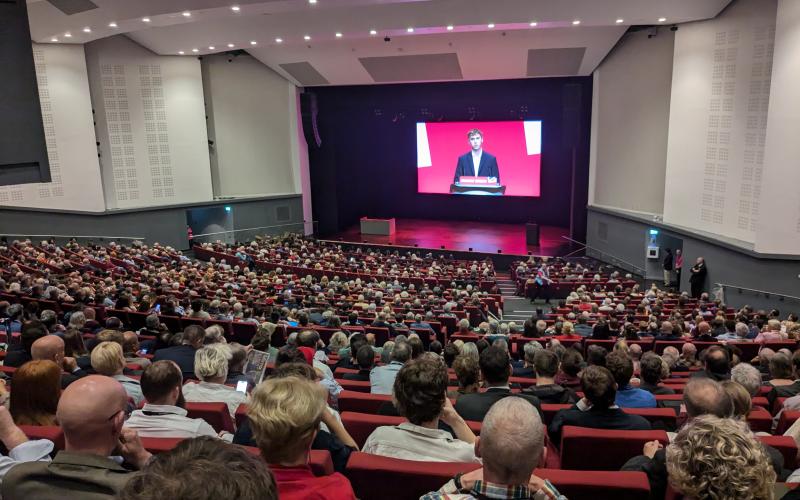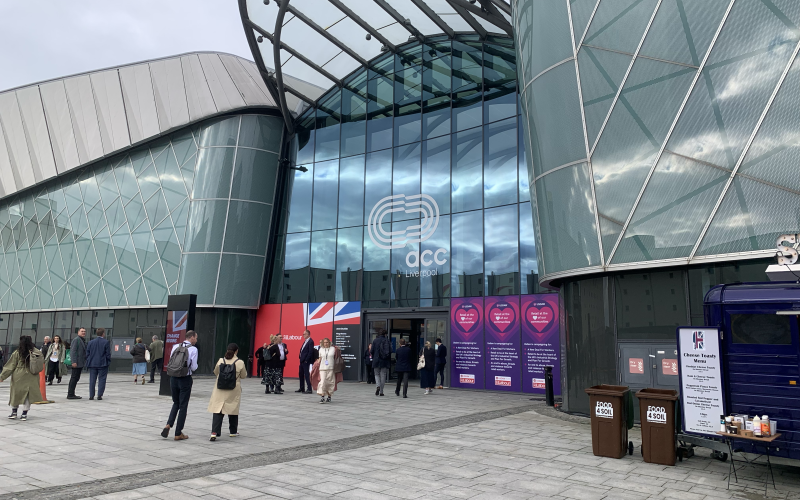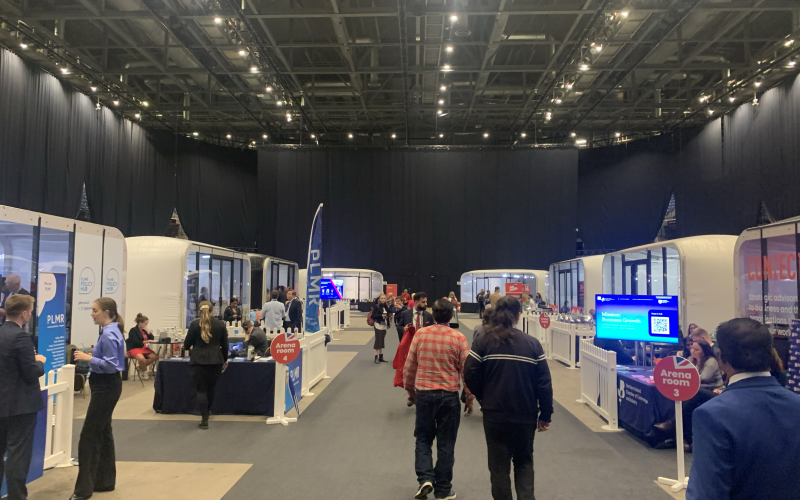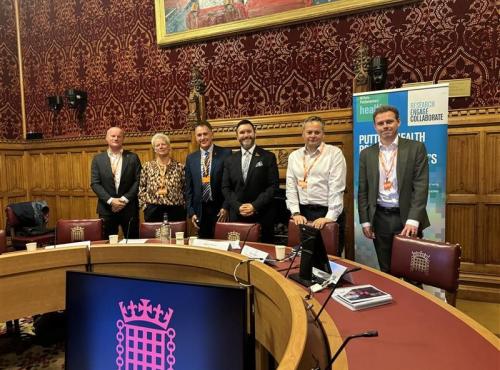Policy Connect at Labour Party Conference
Labour’s first party conference in government for 15 years took place in Liverpool this week, with the Policy Connect team joining members, business and industry leaders, and new MPs and Ministers for an engaging few days along the Royal Albert Dock.
After a series of recent errors and backlash regarding the means-testing of the winter fuel payment, celebration of Labour’s resounding July election victory was somewhat restricted amidst a tense political and policy environment.
With an impending international investment summit and a 30 October budget limiting new policy announcements, Ministers were tasked with reassuring participants and the public that the Government remained committed to its central missions and wider plans to transform the UK’s economy and public services.
Chancellor Rachel Reeves delivered perhaps the most significant speech of the conference, hinting at a possible easing of the Government’s fiscal rules with remarks that “it is time the Treasury moved on from just counting the costs of investment in our economy to recognising the benefits, too”.
For Policy Connect’s James Taylor the state of Britain’s economy was the clear focus in Liverpool:
“The stark challenge and importance of reigniting Britain’s economy after nearly two decades of stagnation and decline was clear across the fringe events and discussions I attended. Efforts to build a competitive economy fit to meet Britain’s great social, regional, and industrial challenges are the lynchpin of Labour’s plans for government, and a lack of new policy announcements at this conference have added to a sense that the Chancellor faces a potentially government-defining budget on 30 October.
Despite intense speculation about components of the budget, listening to contributions from Ministers such as Johnny Reynolds MP, Peter Kyle MP, and Hilary Benn MP, it was clear that the Government’s plans for investment, skills, an industrial strategy, and workers' rights are being developed alongside businesses, trade unions, and workers, and increasingly close to finalisation. Delivering these plans will now require firm leadership, a more robust political strategy, backing from the private sector, and a clearer focus on the importance of reducing costs and strengthening financial and employment security by the next election”.
Gaelan Komen, Alainah Amer, and Robert McLaren were also at Labour Party Conference, and attended a range of fringe events, receptions, and member meetings.
Joining James in attending their first party conferences, Gaelan and Alainah were delighted to engage with stakeholders from across the country and welcomed the Government’s focus on producing a preventative and sustainable path to national and economic renewal:
“I thoroughly enjoyed attending this year’s Labour Party Conference. The breathless few days were packed with illuminating events, receptions and meetings setting out Labour’s priorities for the new Parliament, and how its mission-driven government can build a preventative and sustainable state.
Whether in events focussed on housing, health or sustainability, ministers and delegates alike recognised the cross-cutting roles departments, public services and stakeholders play in building better public health, opportunity and outcomes.
The conference welcomed an unprecedented sea of delegates, all eager to help reach Labour’s missions. Ministers must now carry momentum forward and mirror Policy Connect’s collaborative, constructive ethos to develop a state that works.”
“It was no surprise that decarbonisation and net zero took centre stage at this year’s Labour Party Conference. With Labour’s ambitious plan to achieve Clean Power by 2030, the question on everyone’s mind was – is this target achievable? While you may come across opposing opinions on this, you would find greater consensus that it is a collaborative mission, one that requires everyone to play a role.
My three main key takeaways were, firstly, the Government must provide policy certainty and remove planning restrictions which in turn will de-risk investment, create more green jobs, and bring us closer to our net zero targets. Secondly, devolution is crucial to the net zero transition. Local authorities should be given more agency and resources to facilitate a localised transition. Lastly, Miatta Fahnbulleh MP, put it best when she said, ‘consumers are at the heart of this transition’. Retrofit and energy efficiency schemes, like the Warm Homes Plan, should be designed with the community in mind.”
After a thought-provoking and exciting few days in Liverpool, Policy Connect are looking forward to working with the Government and Labour MPs as we work to deliver public policy that improves the lives of individuals, communities, and the country.







